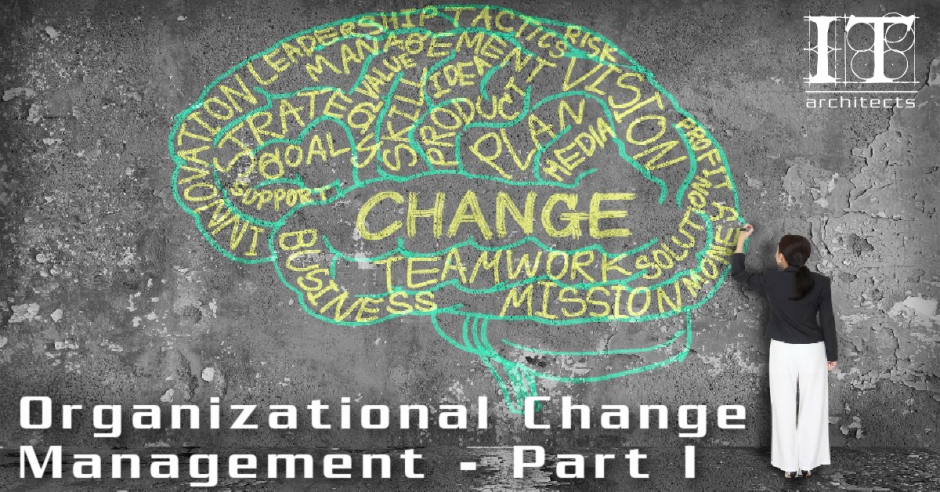Marianne Hang, Senior Project Manager
November 25, 2018
“This is an OCM project” is an observation that is regularly directed at me as the Project Manager in charge. It’s somewhat of a surprise because traditionally the perceived value of organizational change management deliverables within projects has been downplayed. Often relegated to the soft skills category and seen as providing less value than technical skills, the need for organizational change management skills to support projects has become increasingly recognized. I suspect this is a result of the number of projects that are technical successes, but failures when it comes to end user perception and feedback. OCM is also a key part of the Project Manager’s toolkit for rescuing project shitstorms, (see Managing a Shitstorm where timely, transparent, and inclusive communication is critical to moving a project out of a state of chaos and into one of stability. The ability of a Project Manager to bring OCM skills to the project space is more than a value-add proposition – it’s become a necessity for success.
End user (client) perception is not one of the KPIs typically tracked and reported on within a project, so it may be tempting to say that a project is successful if it delivers on scope, schedule, and budget. But if a project is not received or perceived well by the end users, no amount of adherence to scope, schedule, and budget will stop the disparaging comments at the water cooler or complaints emailed to accountable executives. In the case of an enterprise-wide project, the magnitude of end user feedback is at the organizational level. If that feedback isn’t positive, the reputation of the project suffers. Many times, the project hasn’t done a thing wrong in terms of managing scope, schedule, and budget – leaving Project Managers bewildered at the bad press their hard work has received. This bad press can usually be traced back to a lack of Organizational Change Management in regard to project delivery.
What is Organizational Change Management?
Organizational Change Management (OCM) is more than a Project Communication Plan for the Project Team and its stakeholders – it is an overriding and ongoing delivery stream that is just as important as the project management and technical delivery streams. When an OCM Lead is assigned to a project, their role is part of the project leadership team along with the Project Manager, IT Architect, and Business Lead. OCM Leads are in short supply and it is rare that a Project Manager will have one dedicated to their project. While organizations are beginning to understand the critical need for OCM in projects, making available and embedding this role into their PMOs is not keeping pace. When an OCM Lead is present, that resource is often stretched between operational and project work, with operational work being the clear winner. If an OCM Lead is present within a PMO, they will often provide OCM services to every project under the PMO umbrella. The risk is providing a one-size-fits-all OCM deliverable that may not meet specific project requirements.
In the end, it is often the Project Manager who must either take on or shore up the OCM role, even when the statement “this is an OCM project” makes clear that project OCM work will likely be a full-time job unto itself. Although Project Managers are not OCM Leads, the skill sets have similarities that Project Managers can leverage. And the truth is, most Project Managers by necessity fill an OCM role along with the project management role. Our intent is not to turn Project Managers into OCM Leads, but rather to build the project management skill set with OCM capabilities in order to better position Project Managers for projects where OCM is front and center, but the OCM Lead is not, so the Project Manager is left holding that bag. As a result, when Project Managers hear the comment “this is an OCM project”, they can feel less discomfort and more confidence in their ability to successfully manage the OCM process.
OCM Challenges at the Beginning of a Project and How to Navigate Them Successfully
At the project level, Organizational Change Management is about understanding what the impact of implementing the project solution is to the client organization, whether that impact is limited or enterprise-wide, and how best to ensure that the client has a positive, effective experience in adopting the project solution. As a Project Manager, one of the best starts to effective OCM is to approach this requirement from the position that providing a “white glove” experience for all stakeholders is the project goal. Begin by bringing your IT Architect and Business Lead together to discuss how best to align on the high-level change management approach (from both a business and system perspective) and how to explain it to stakeholders throughout the project lifecycle. As the leadership team, work together to coach the Project Team to also adopt and communicate a white glove approach. A white glove approach is often referenced in the OCM process and it means ensuring that stakeholders feel that the level of solution delivery they receive demonstrates care and exceeds expectations. This assurance must be provided from all streams of a project – governance, technical, and OCM. When OCM demonstrates this high level of quality assurance, it effectively supports project solution adoption in a manner that is streamlined, comfortable, and trusted by stakeholders. Achievement of a white glove experience may require different approaches for different individuals and groups, but the overall goal is the same. Achieving this goal requires a clear understanding of project stakeholder groups and what a white glove experience means to them. Obtaining and confirming this information is therefore the Project Manager’s first directive in OCM.
Every successful project relies on pre-planning and the OCM component is no exception. Pre-planning provides a solid OCM foundation to support the situations that cannot be planned for but do occur in every project. While planning for most project components can be a trial in the early stages when there isn’t much information in place, OCM is all about seeking information and can often begin as soon as the project leadership team knows who the client contacts are. Investigating what a white glove experience means to your stakeholders, as described earlier, is part of this pre-planning. Pre-planning also includes investigation into the corporate culture of the client, finding out if they have a history with similar initiatives and what that overall experience was like, understanding the pain points that should be addressed by OCM, what concerns stakeholders most about the project and its deliverables, and if the client has an established OCM resource or group that you’re expected to work with.
Every Project Manager knows that in the absence of executive-level sponsorship and support, managing an initiative to success can be an uphill battle. Ensuring executive-level support for the OCM process and deliverables of a project is an important part of overall project support. OCM is one of the most critical components to project success, yet it is also one of the first components to be downplayed or cut when project KPI issues arise. With this in mind, be sure to have a conversation with the Project Sponsor in the early days of the project, and include your IT Architect and Business Lead in that conversation to confirm OCM support from a business and technical standpoint, respectively. This demonstrates to governance that OCM is an overriding component of project success, not a touchy-feely add-on with little value. OCM supports success at the business and technical levels, and it must be in place throughout the project lifecycle. The reality is that every project starts and ends with OCM, so document and communicate executive support for it early in the project planning stage and rely on that support throughout.
Implementing OCM by employing specific technical tools is a valid approach and is used by OCM Leads, but for Project Managers, these tools are often not within the realm of their expertise. In fact, such tools are not necessarily relevant at the beginning of a project. Thus, it is more important to maintain focus on using the already well-honed interpersonal, planning, sleuthing, and negotiating skills present in your leadership team (Project Manager, IT Architect, and Business Lead) to better understand what OCM means to the organization, to start early planning for managing the impact of the project on stakeholders by implementing OCM, and to build support with project governance for an OCM plan. Each of these early stage components related to OCM can be successfully managed by a Project Manager, in collaboration with their trusted IT Architect and Business Lead. Understanding that this skill set is provided by the Project Manager, along with the assistance of the leadership team, will help Project Managers dive into OCM and build that foundation in a manner that supports the leadership team, as well as the project and project team, in the days to come.
In When Project Management Requires Change Management – Part II of this blog, we’ll take more of a deep dive into specific OCM strategies that can be used on your projects.
Ms. Marianne Hang is a Senior Project Manager affiliated with IT Architects in Calgary, Alberta. IT Architects (www.itarchitects.ca) is an information consulting firm specializing in business process optimization, system evolution planning, and the deployment of leading-edge technologies. If you require further information, Marianne can be reached at info@itarchitects.ca or 403-815-7505.


